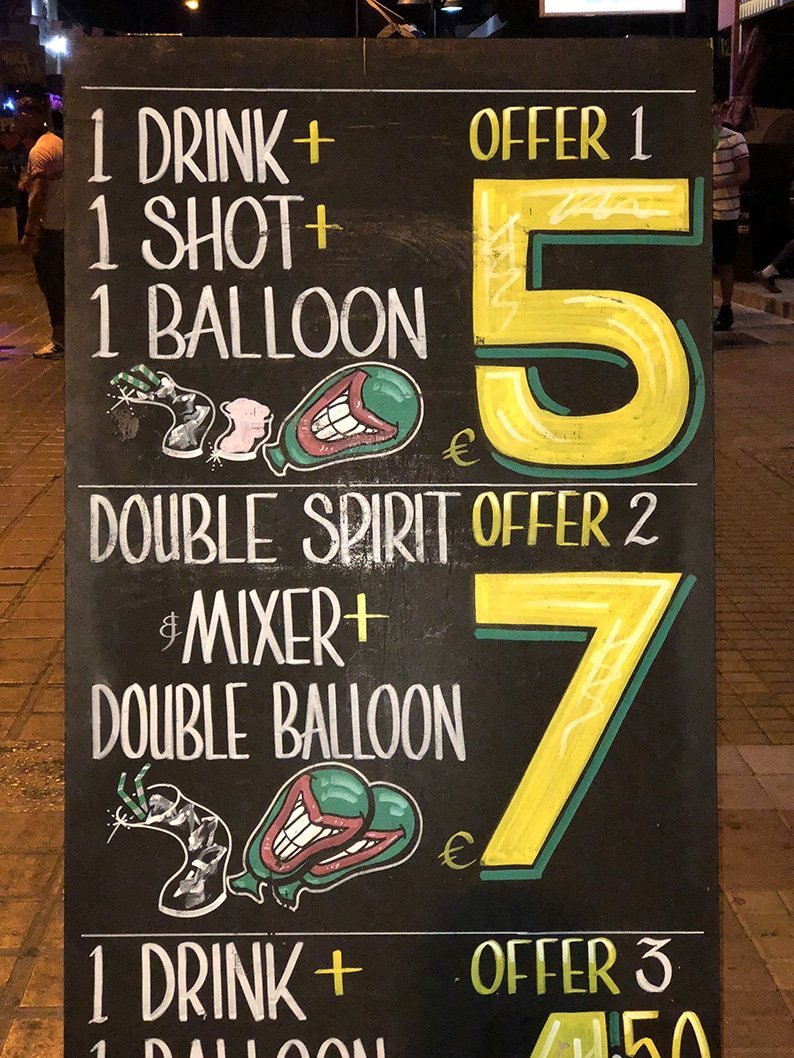By Liam Carter
Although illegal, the sale of laughing gas in popular tourist destinations is so blatant that many bars and nightclubs are actually advertising and selling the drug themselves.
A simple stroll through the centre of Ayia Napa highlights the prevalence of laughing gas or ‘hippy crack’.
Many nightclubs and bars have decided to hire ‘balloon girls’. Sporting a haversack, their job is to sell the drug to the many patrons who flock the popular nightlife destination. Outside the clubs, it’s everywhere from blackboards traditionally used to advertise a happy hour or a cheeky quote revolving around alcohol to dedicated ‘balloon kiosks’.
According to the latest Global Drug Survey, laughing gas was the seventh most popular drug in the 50 countries surveyed. Half of the UK respondents said they had tried the drug at some point in their lives. The drug is a colourless, sweet tasting gas that is medically used as an anaesthetic, tranquilliser and painkiller. It is relatively cheap and produces a short-lasting high. Usually it is dispensed from canisters to small whippets into balloons, which the user then inhales from.
According to Cypriot laws the user caught doing the drug cannot be arrested but police regularly arrest people who are caught selling the drug. Just a few weeks ago, two women were fined by the Famagusta court in Larnaca for selling laughing gas. The 23-year-old and a 22-year-old were fined 1,200 euros and 900 euros respectively.

Ayia Napa mayor, Yiannis Karousos, told the Sunday Mail that the issue of laughing gas was wide spread all over Cyprus, from Paphos to Protaras and not just in Ayia Napa, but that the municipality was eager to stamp out the practice.
“Ayia Napa however is the only area where the police actually carry out operations to stop this,” he said. “The police in Ayia Napa are doing a very good job.”
He added that the municipality would put pressure on parliament to toughen the laws regarding the sale of the drug.
Ayia Napa police department spokesman, Andreas Constantinou, underlined the present legal difficulties police officers face when building a court case.
“This summer, we focused on cracking down on such use and in fact we have brought 66 cases before the court,” he said. “We prosecute offenders who are caught selling the substance on the streets, however we can’t arrest or fine an establishment owner for advertising the substance. We can only prosecute when we are confident someone is selling the substance.”
According to UK government data, in 2017 eight people in the UK died from the use of laughing gas. In 2015 four people died.



